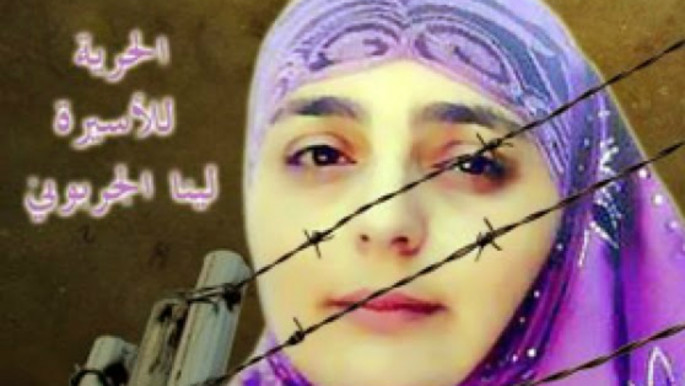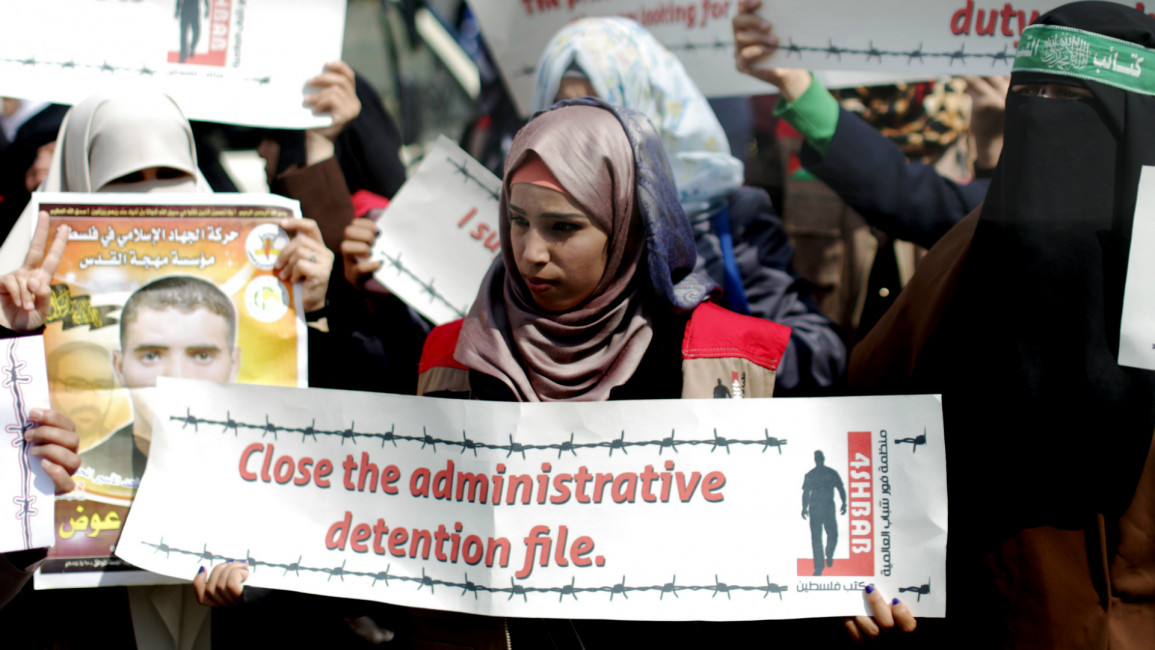
A tale of two prisoners of Israel's occupation
When time isn't on your side, it doesn't matter who is. Abu Ahmed, a man in his 80s, lies semi-conscious on his bed in Gaza's Shifa hospital.
His heart and other organs are failing; his chances of getting out of hospital alive are slim. By his side are a few doctors discussing possible ways to get around strict criteria needed to get him transferred out of Gaza or, at least, admit him to intensive care.
This is not typical doctor behaviour, especially when resources are scarce, but they have good reason: The man's son, who has been in the Israeli prisons for 14 years, is to be released in 29 days. Will time be kind enough to be on his side?
Palestinians marked 17 April as Prisoner's Day, dedicated to those who are or were imprisoned by the Israeli occupation - the Palestinian prisons ministry says that 800,000 Palestinians have been arrested since 1967, many of whom have been jailed for a significant time.
Keeping track of the exact number of Palestinian prisoners is not a task for the weak. Standing now at around 6,500, the figures are ever changing, and regular night raids and arrests are the norm in Palestine.
On Tuesday the Israeli forces grabbed six Palestinians from their houses in the West Bank. Eight were taken the day before, and 17 the night before that. Who is to know how many will be taken today?
| Israeli prisons affect the lives of hundreds of thousands of Palestinians. |
Israeli prisons affect the lives of hundreds of thousands of Palestinians. No political deal has been able to stop Israel's imprisonment policy, not even Oslo, and so far no swap deal has either.
Palestinian prisoners from modern-day Israel represent an especially tormented sector, and one case illustrates this perfectly.
Lina al-Jarbouni, 39, will this week have spent 14 years in prison. She was accused of assisting the Palestinian resistance during the early days of the Second Intifada, a charge for which the sentence is usually less than three years - she got 17.
The release of all women prisoners was part of the swap deal for Israeli soldier Gilad Shalit in 2006. Lina was prepared for her release when, just before zero hour, her jailers said she was excluded due to her Israeli citizenship.
Other Palestinians with Israeli citizenship were released as part of the deal.
Her Israeli citizenship, the cited reason for her staying in prison, also grants her the right of early release on terms of good behaviour. She has been denied that right.
And like most Palestinian prisoners, she has been subjected to interrogation, abuse and medical negligence. Unlike other prisoners, she cannot complain to the IRC or benefit from the Palestinian prisoner societies.
Lina comes from Arraba, a town in occupied Galilee. Arraba, like Lina, has had its share of torment. The town was under Israeli military rule from its occupation in 1948 to 1966.
In 1976, Arraba participated in the marches of 30 March, now commemorated every year as Land Day, and one of the town's residents was killed in the clashes that ensued.
In 2000, two youths were killed in the clashes with the Israeli police at the beginning of the Second Intifada.
Neither protest could stop the Israeli land expropriation plan, and the 2000 protests were quelled by the police, successfully pushing forward the Israeli policies of division and isolation.
 |
|
| Lina al-Jabouri has been held in an Israeli prison for 14 years. |
Palestinians, however, refuse to yield to these policies. This week, Palestinian activists launched an online campaign in solidarity with Lina.
Thousands of messages were written in Arabic and English on Twitter to introduce Lina's story, bringing it back from the oblivion inflicted by the struggles of daily life under occupation.
Thousands of Palestinians live in Israeli prisons, forgotten, awaiting their release. The world may regard them as numbers, but they aren't.
Behind each and every one of them is a story, a family, a dream expecting to be fulfilled and a homeland waiting to be freed.
I don't know whether time will be on Abu Ahmed's side, but I know for sure that it will be on Palestine's. Abu Ahmed's frail heart may give out before his son is released, but nations never die - they always outlive their occupiers.




